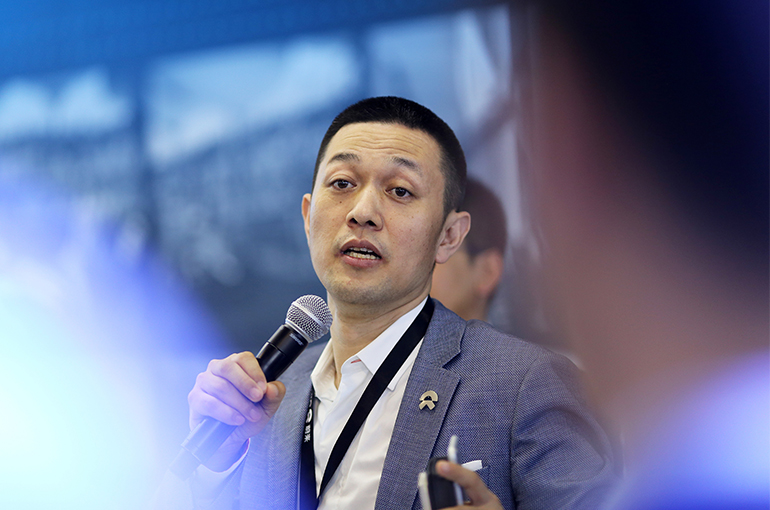 Nio Founder Says EV Makers Must Heed Existing Client Needs Amid Fast-Evolving Tech
Nio Founder Says EV Makers Must Heed Existing Client Needs Amid Fast-Evolving Tech(Yicai) Aug. 26 -- In the era of smart cars, the rapid iteration of core vehicle configurations is a major problem facing the industry and manufacturers need to carefully consider the interests of old customers when launching new products, the chairman and founder of Chinese electric car startup Nio told Yicai in a recent interview.
In the past few years, chips, smart driving, intelligent cockpits and other new forms of hardware have replaced engines and gearboxes to become the new core strengths of car marques, Li Bin said. Unlike before when only the upgrading of mechanical parts was considered, the iteration of chips and software is very fast now.
It means that many existing car owners can only enjoy the latest configurations for a short time before their vehicles become out-of-date and are no longer compatible with the latest hardware and software.
Therefore manufacturers need to have more systematic thinking, provide good services for existing customers and make long-term plans for software updates, Li said. Because if the old systems cannot be updated, it will greatly harm old users.
Carmakers need to fully communicate with customers when rolling out upgrades so as not to exclude old customers and to stabilize the residual value of second-hand autos, he said.
"Every generation of Nio new energy vehicles uses an intelligent system that integrates hardware and software. This makes the long-term maintenance of products possible," Li added.
Auto companies need to pay more attention to shifts in user demand and the market than before, and win the trust and support of customers through non-stop innovation and optimization of services, Li said.
Nio has invested heavily in a relatively complete battery swap and energy refueling system and this has become a major feature of Nio's services to its customers, Li said.
Although the early deployment of battery swap stations has been a big drain on the Shanghai-based firm’s finances, a good battery swap network will spur sales of Nio’s EVs, and in the long run, as the number of customers increases, it will not be difficult for the battery swap stations to make money, Li said.
As of Aug. 25, Nio had built 2,487 battery swap stations and 23,088 charging piles across China.
Editors: Tang Shihua, Kim Taylor